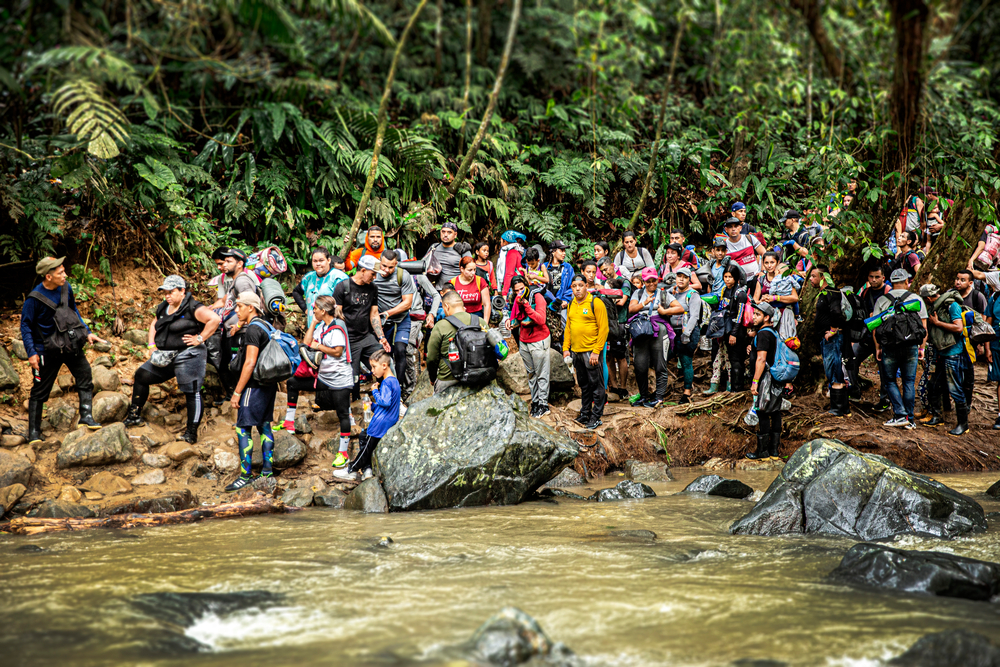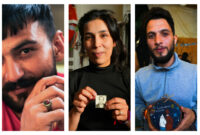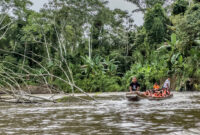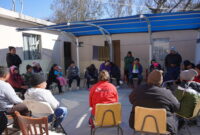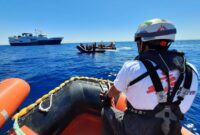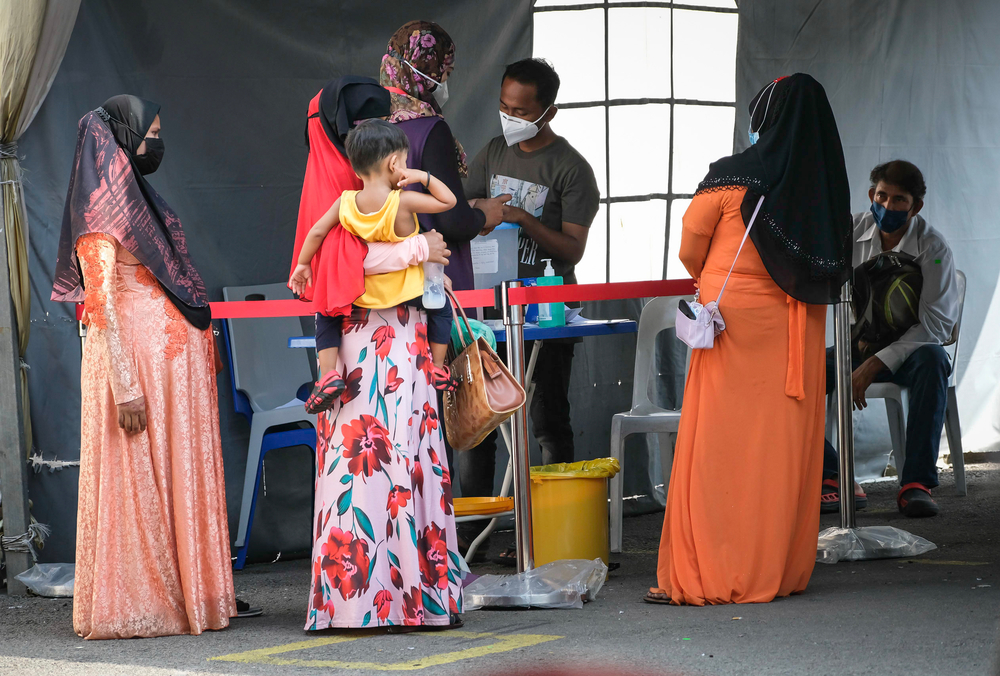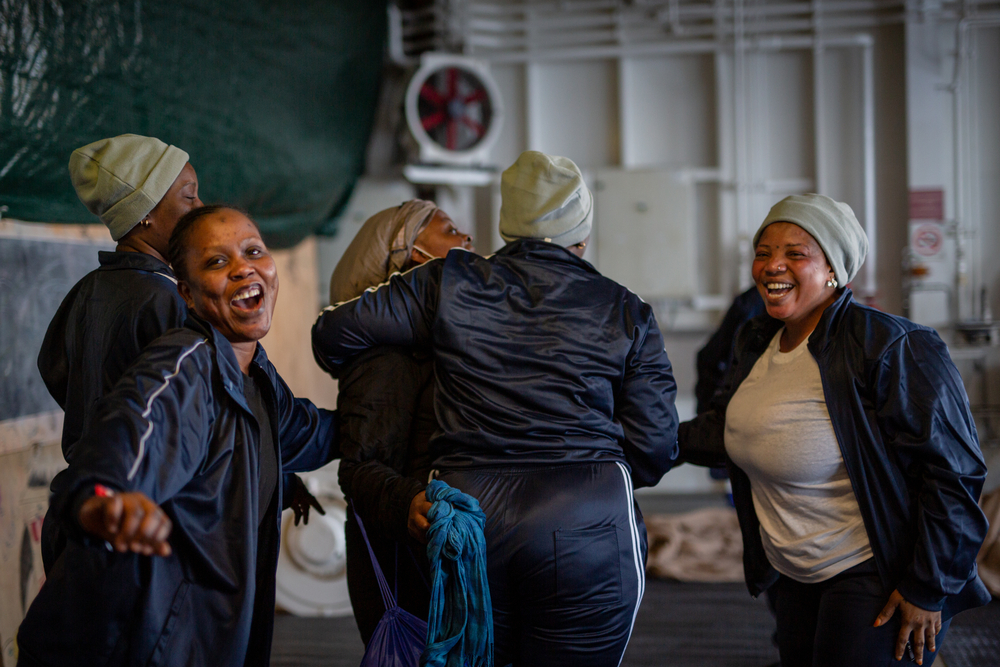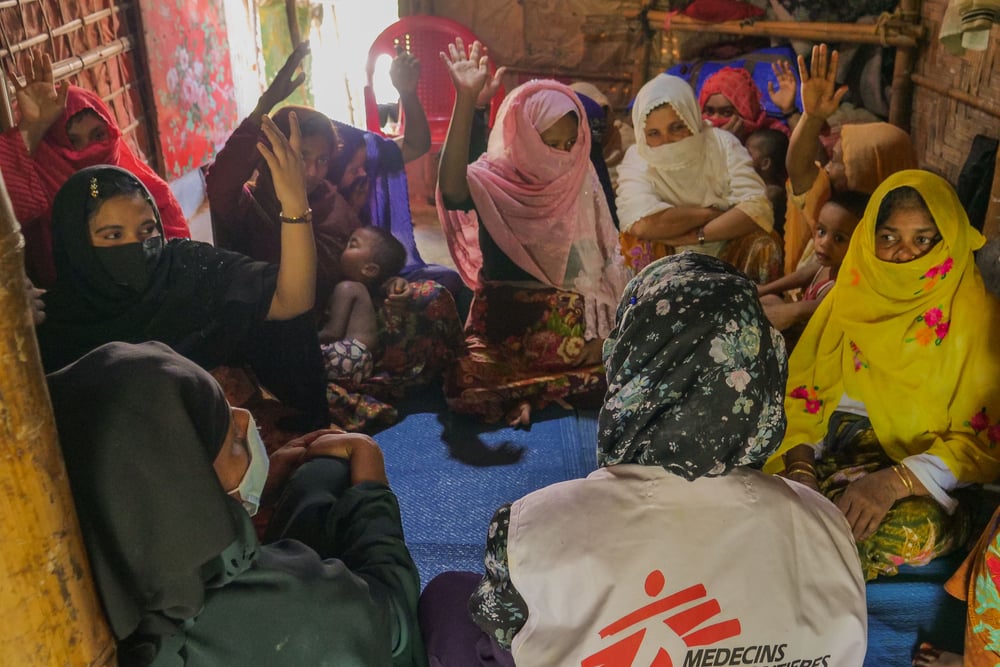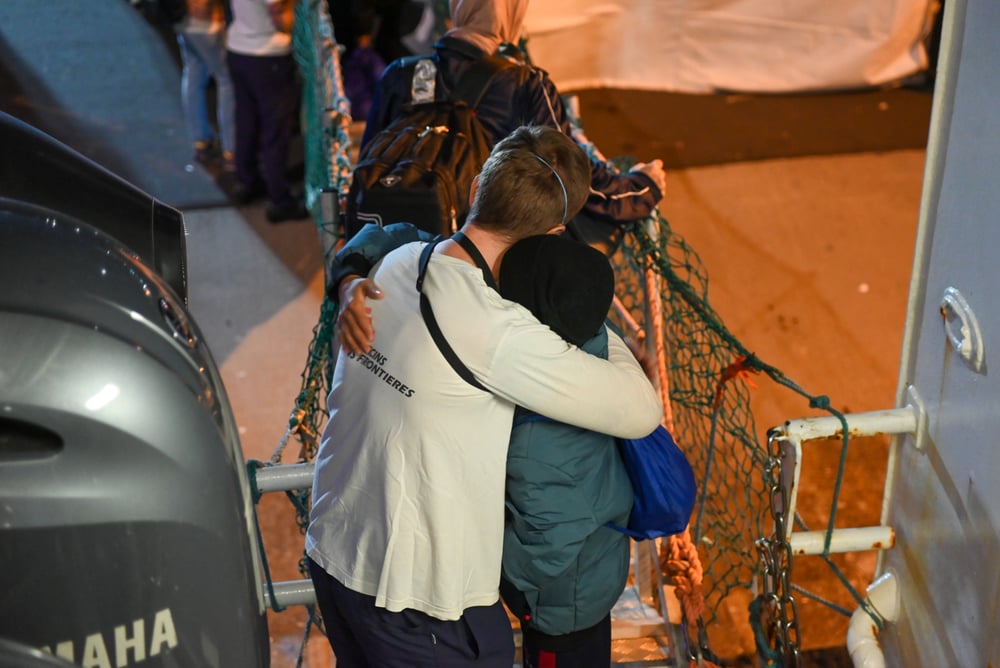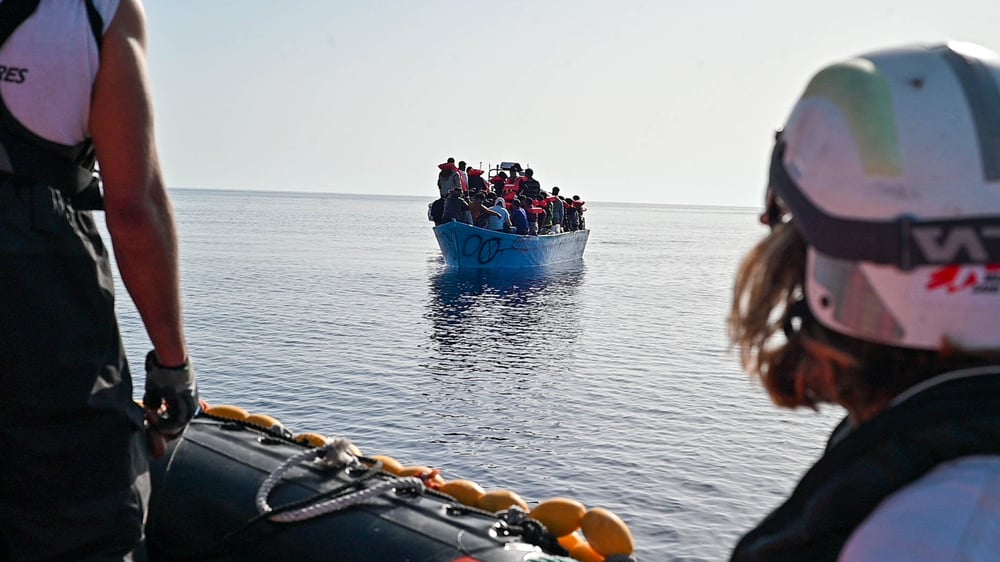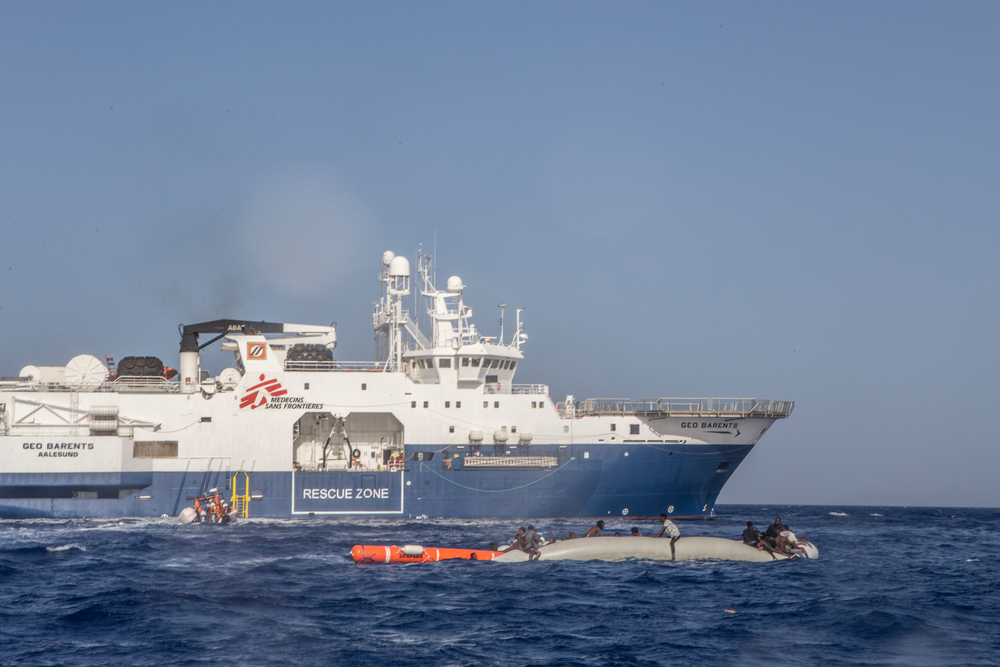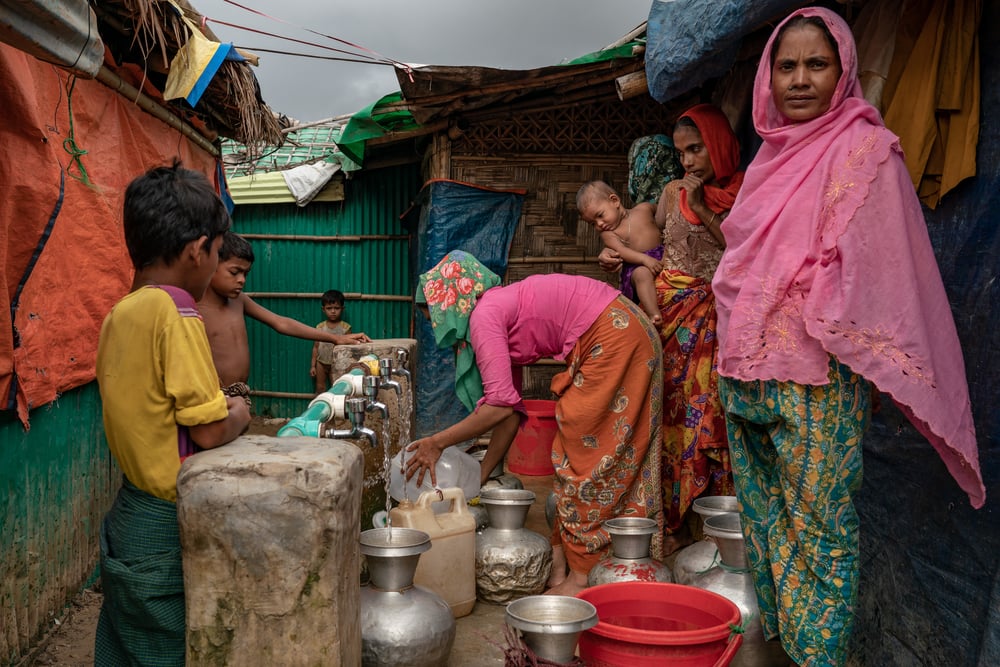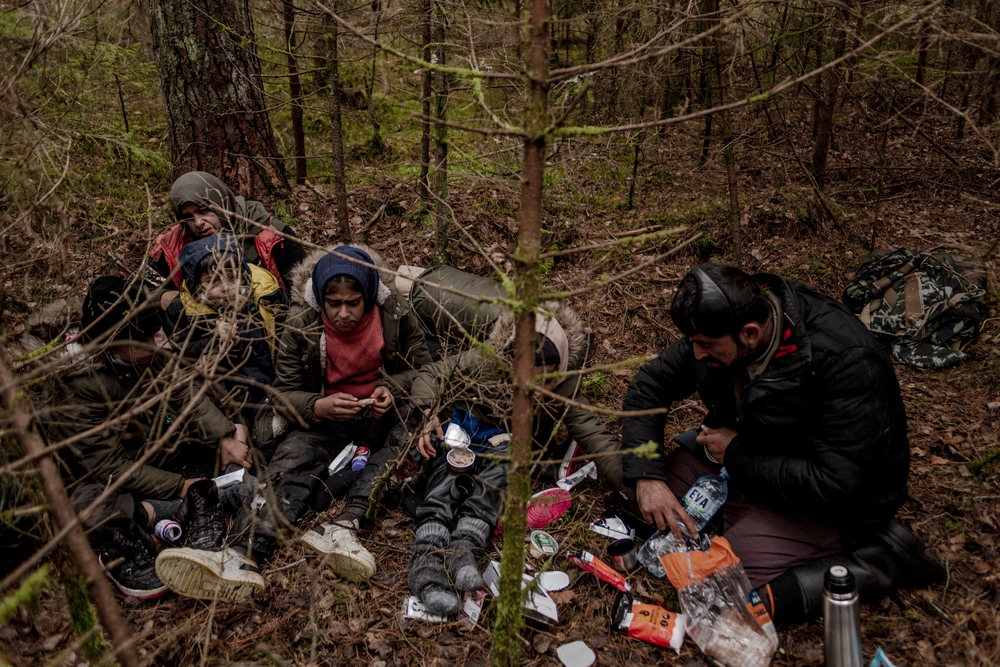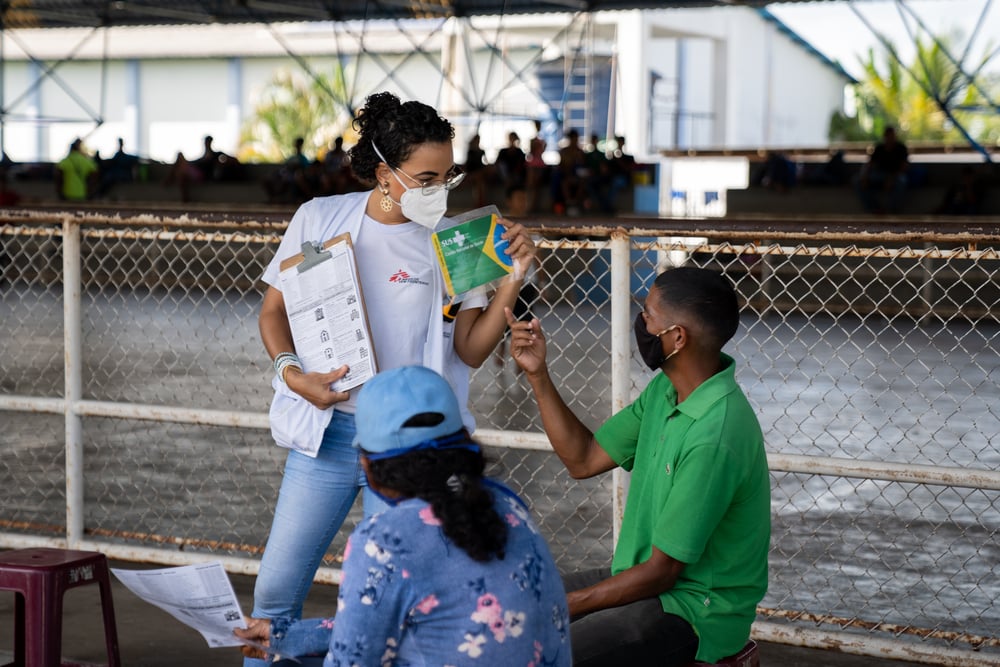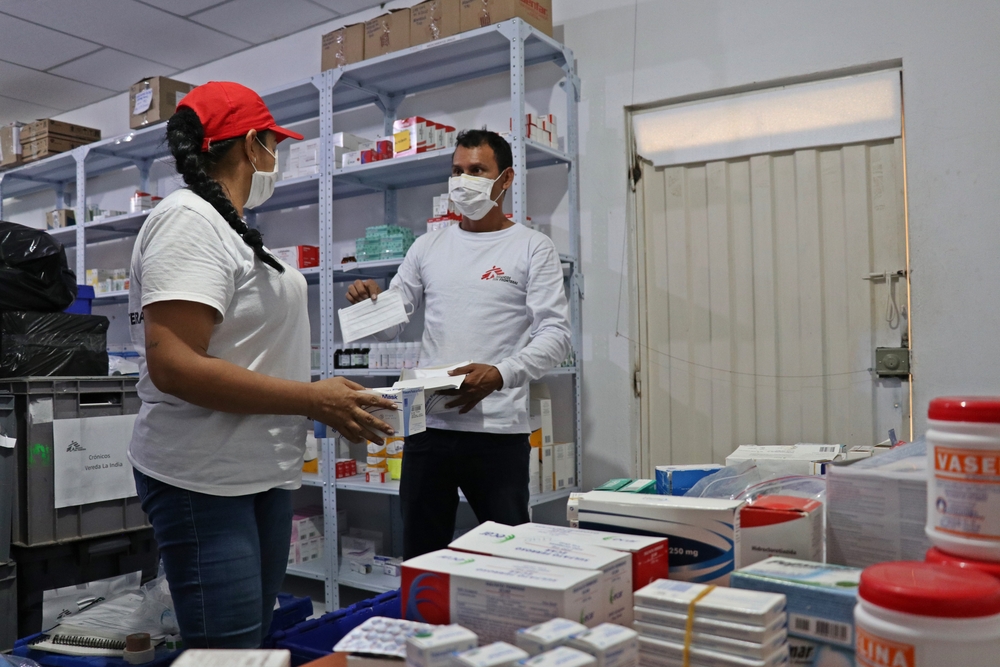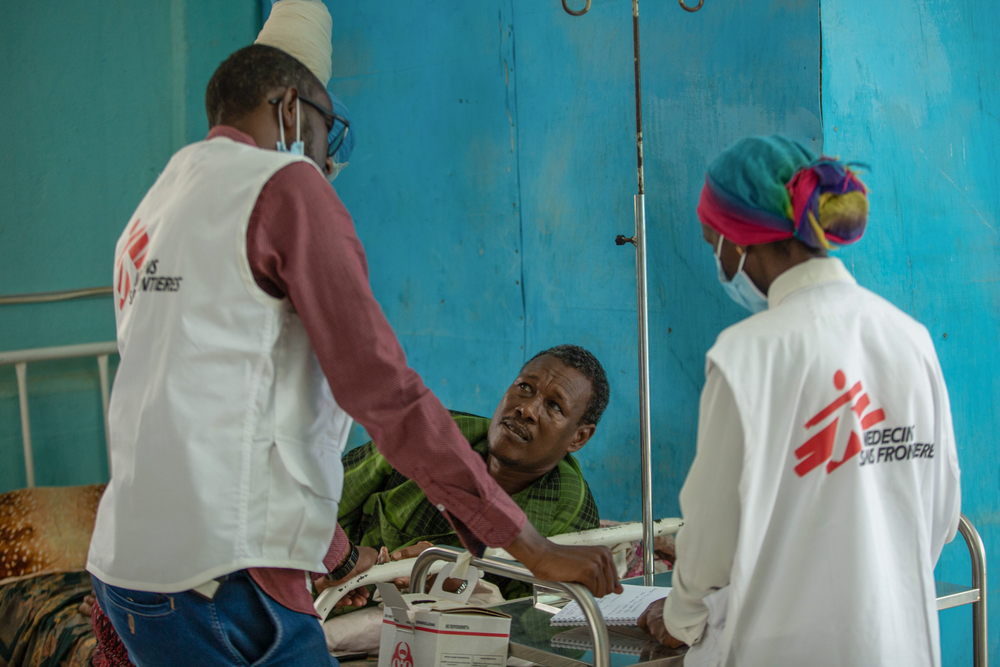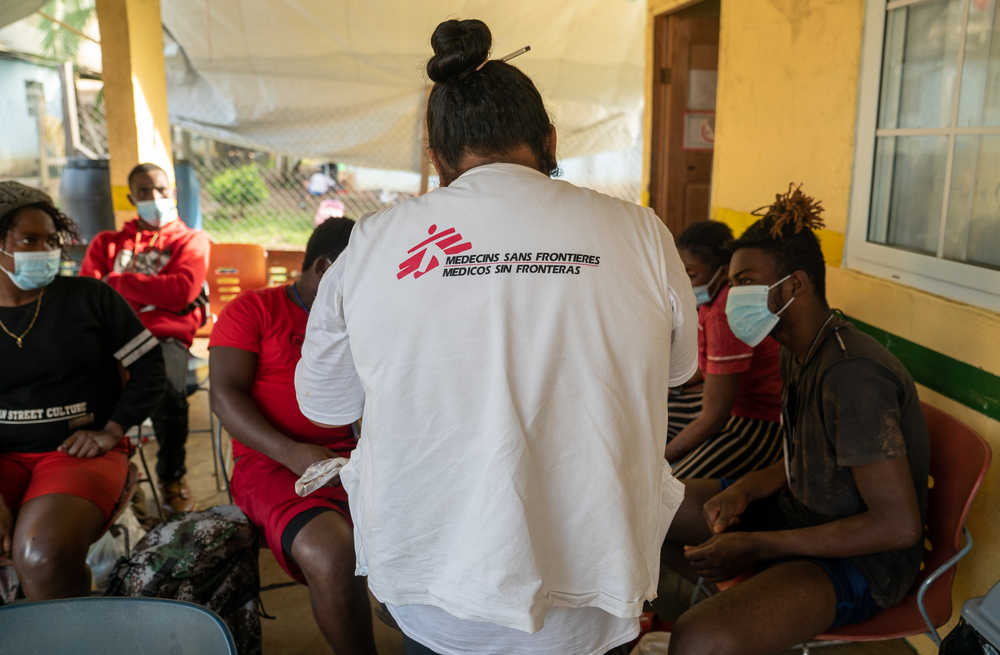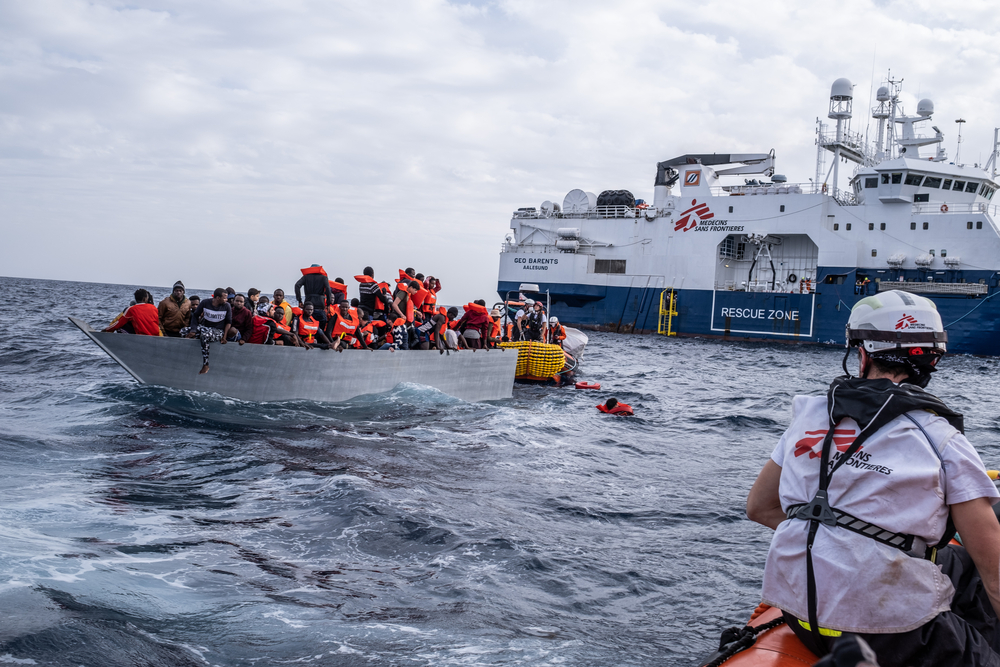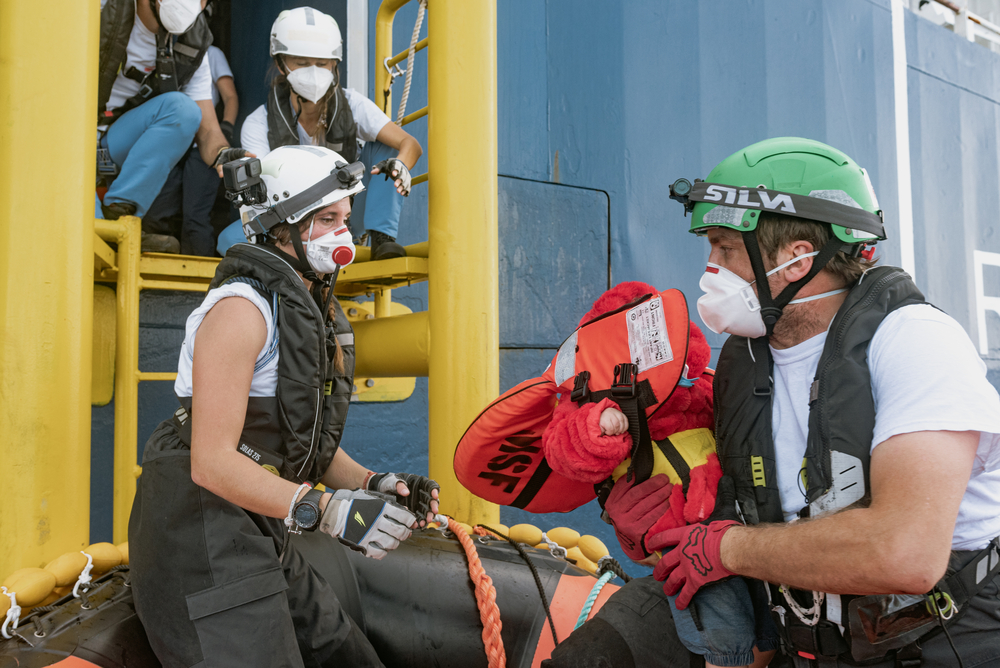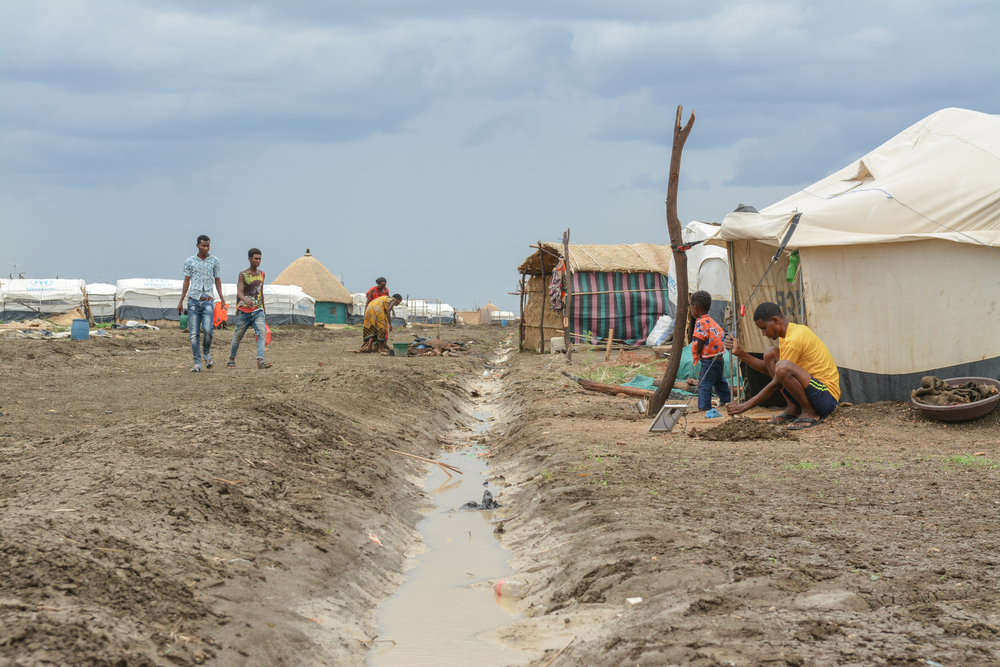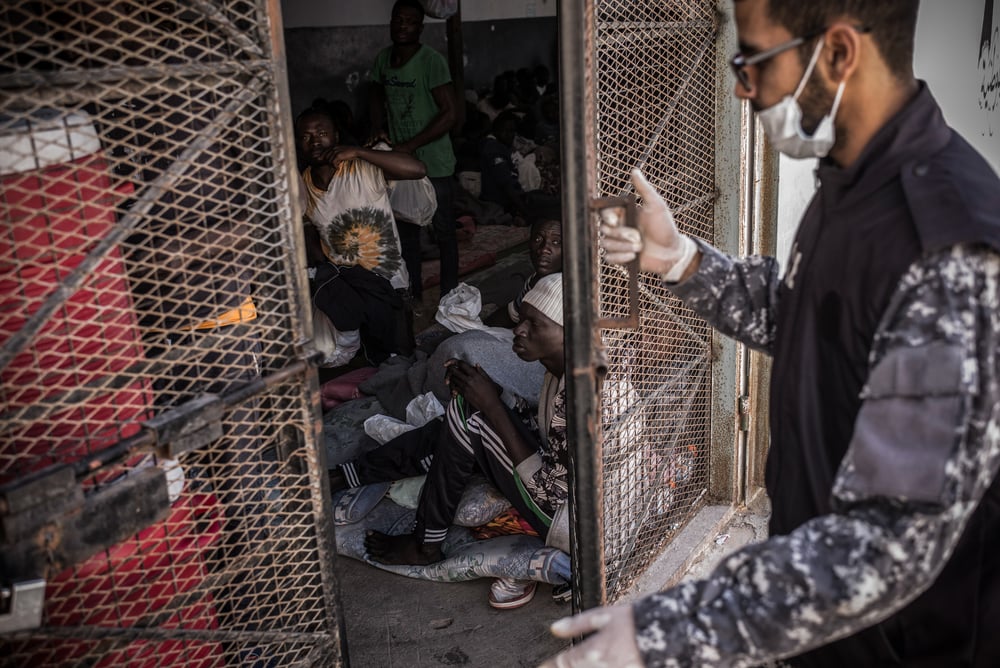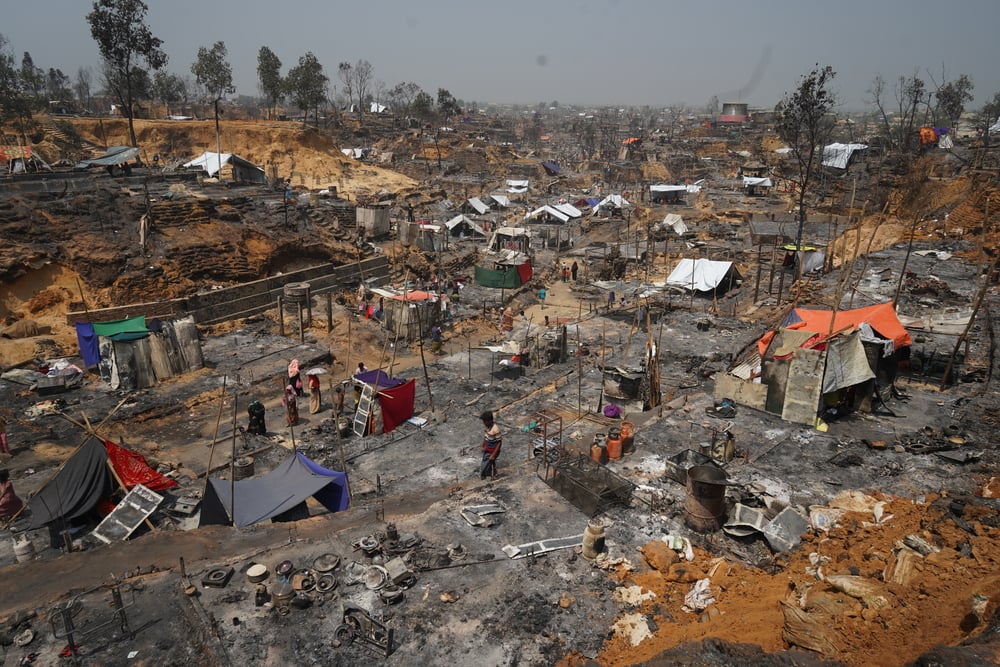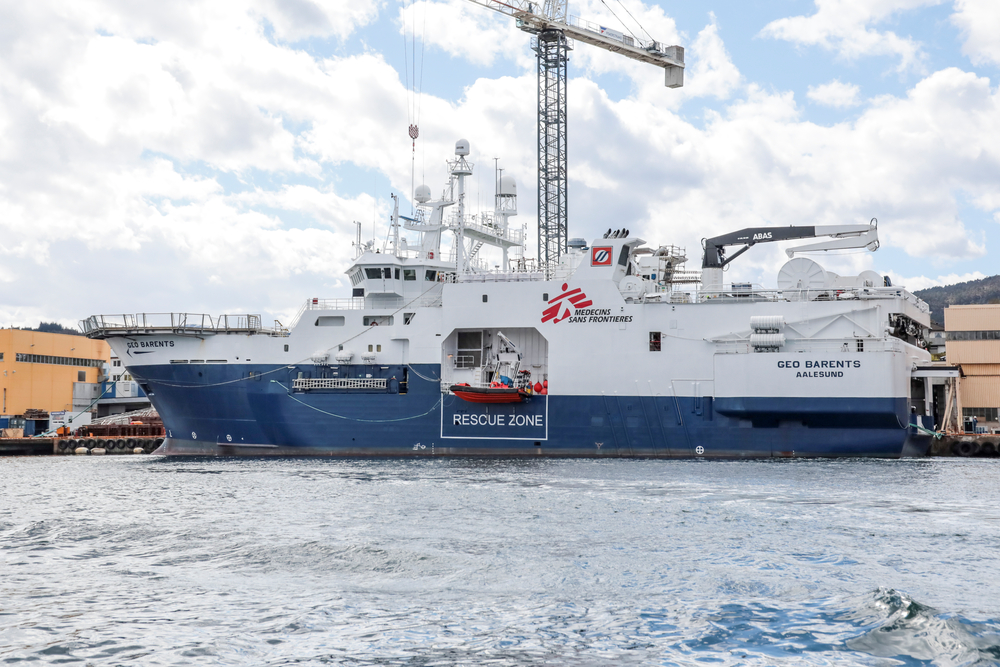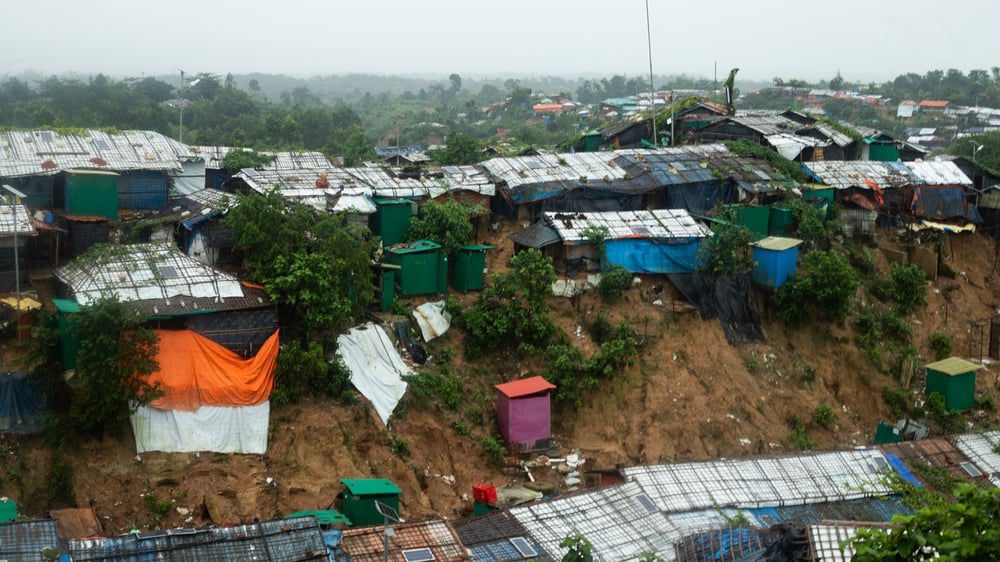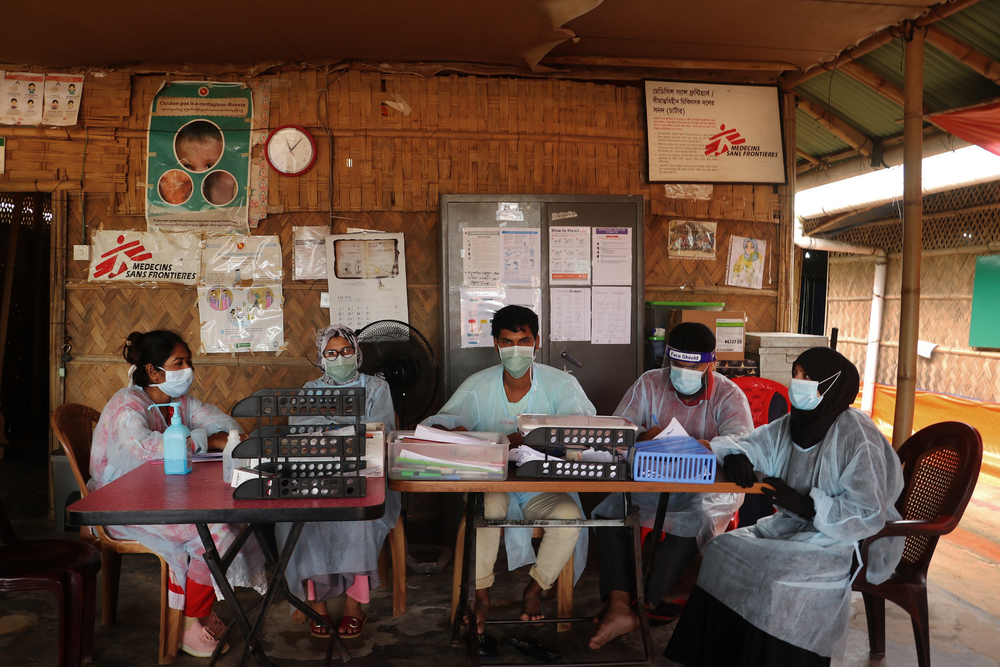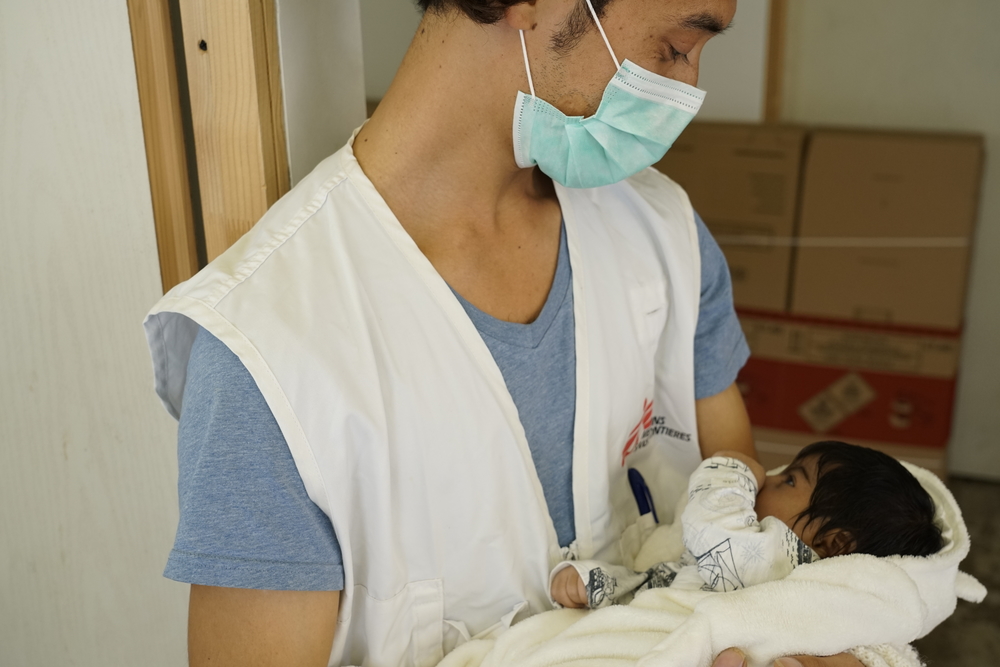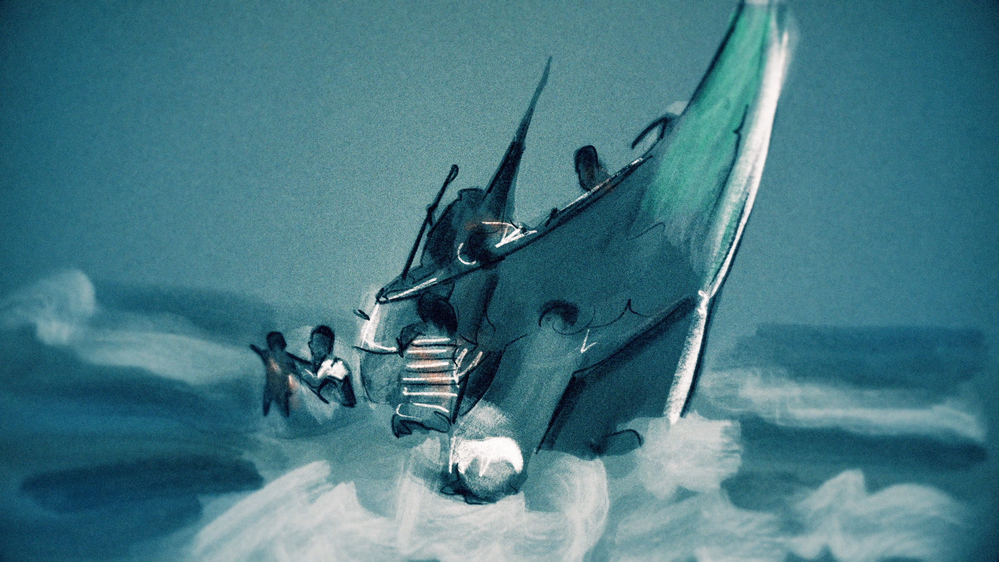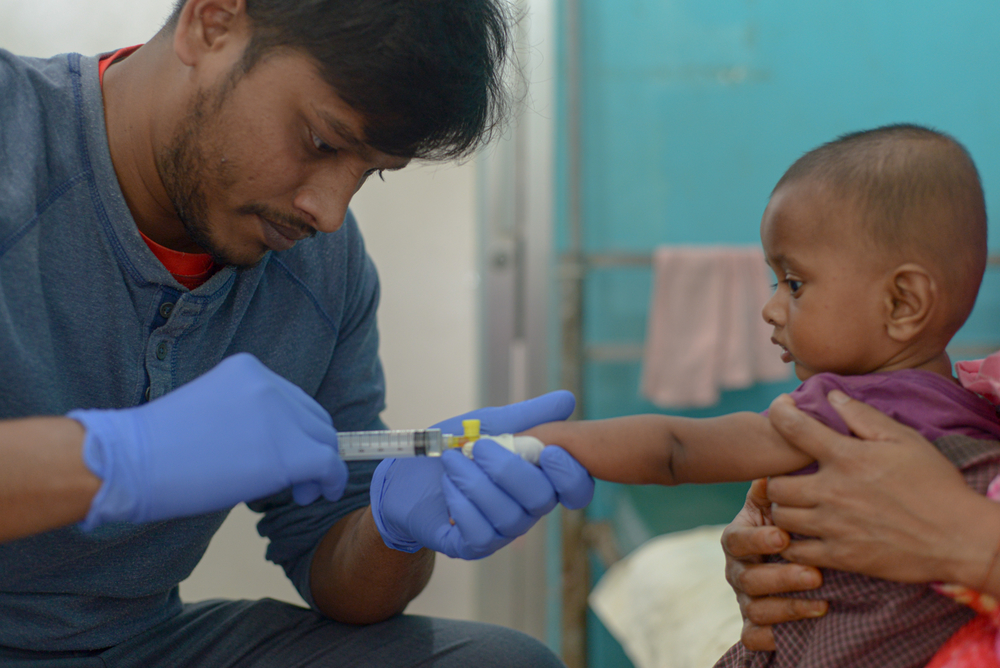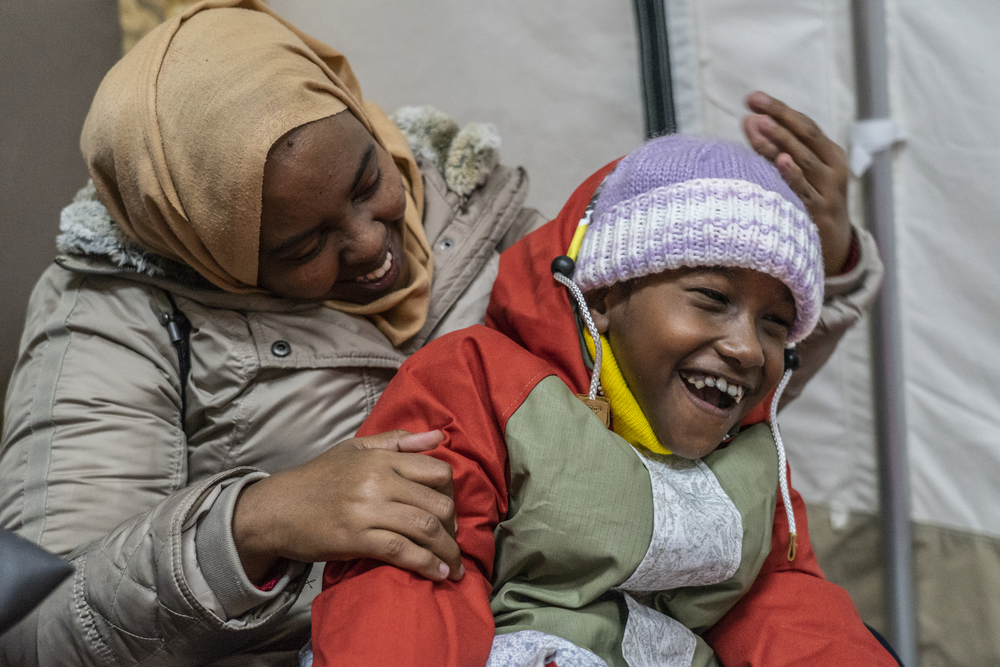“I wouldn’t wish it on anyone”: A migrants’ journey through the Darien gap
Keiber migrated to Ecuador with his wife, where they had two children. Now the four of them are travelling to the United States. Keiber was interviewed at the temporary migration reception centre in Lajas Blancas, Panama, after having crossed the Darien Gap.
“We left Valencia [in Venezuela] five years ago for Ecuador. I am 26 years old and my wife is 25. In Ecuador, we started a family. Our two children are Ecuadorian.
We lived in Guayaquil for four years, almost five. I worked as a delivery man, but what you could buy from that was very little, almost the same as in Venezuela. I thought a lot about returning to Venezuela, but everything is more critical there. In Ecuador, people no longer helped us. There was no more work and we went hungry. Our rent became more and more expensive: first US$100, then US$150, then US$200, until we couldn’t manage it anymore. They wanted to pay us US$300 a month and collect US$200 of it back in rent. It was very unfair. The food didn’t even last 15 days. We were always in debt. That’s why we made the decision to leave.
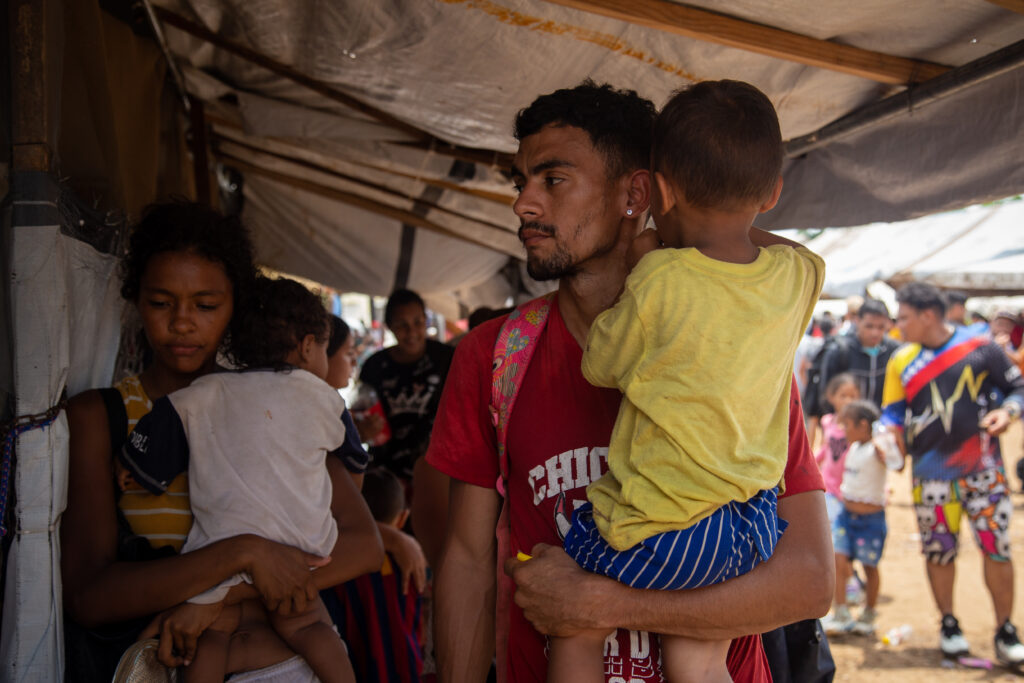
From Guayaquil, we hitched rides on whatever truck or trailer we could get on. In Ipiales, the first town [we came to] in Colombia, we stayed several days and with the US$10 we had we got something to eat. We didn’t know of any migrant shelter or place to eat. A man took pity on us and took us to Cali in his pick-up truck. From there we got on a tractor-trailer to Medellín, for which they charged us about 30,000 pesos [US$7.40]. In Medellín, we slept on the street for two days, in a toll booth. We slept on the floor under a sheet. From there we got a lift on a cement truck to Santafé de Antioquia, an unforgettable town with very friendly people. A man saw us waiting and gave us 50,000 pesos [US$12] so we could eat. Then we rode on a trailer truck to Turbo. On the way, they gave us a tent and US$10. We arrived at a park called La Bombonera and we spent 13 days sleeping with more than 100 families there. In Turbo, a man gave me US$150 for the [boat] ticket [to Acandí]. Thanks to God and him we are here.
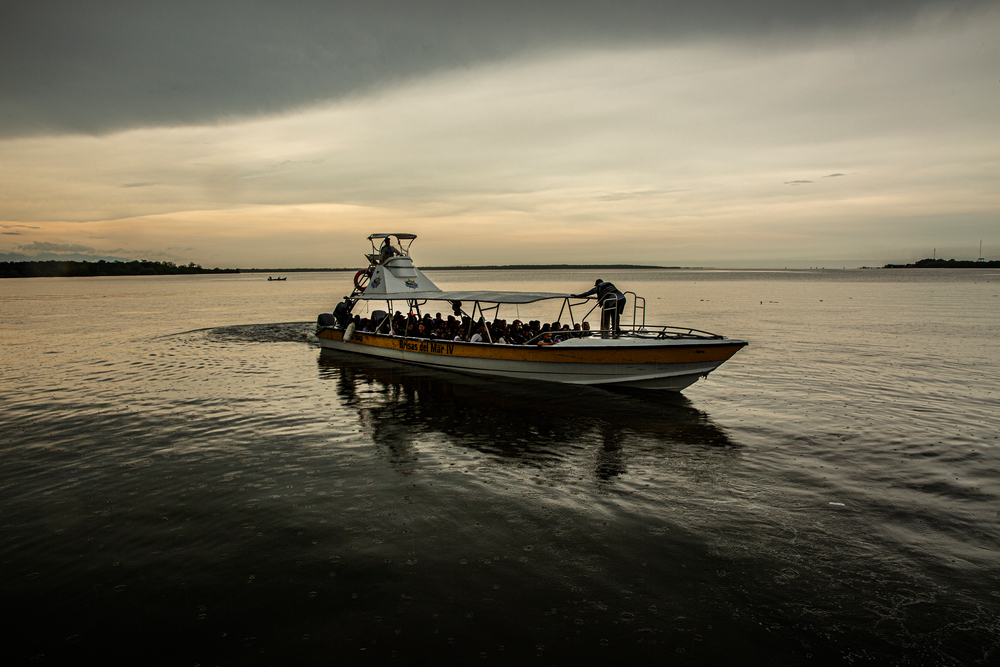
From Turbo to Acandí, they charged us 160,000 pesos [US$40] per adult plus US$150 for a guide, but I only had US$150 and another family also had US$150, and for those US$300 they took both families. Once we arrived, they took us to Las Tecas camp on three-wheelers. In Las Tecas, we stayed one night before starting the five-day walk. We took with us instant soups and the tent they gave us. We arrived in Acandí on Friday and entered the jungle on Sunday. Before starting, all of us migrants said a prayer.
The Darien jungle is the worst thing I have experienced in my life. I wouldn’t wish it on anyone. We thought it would be easier, but it really is hard. It’s a completely unforgettable experience. My wife cried and I cried. If you had a fall there, you would die. My wife can’t swim and cried every time we had to cross a river. It took us five days to cross [the Darien Gap] because we were with our children. On the way, we helped a woman who was having difficulty walking.
There is a place in the jungle where there is a very thick log in the middle of the river – a huge log. And on the other side there is a very deep waterfall. People have to jump, first tying themselves with a rope. Some people slipped as they reached the edge of the rock. After we had passed by, a man died.
The hardest thing was the thick mud. I felt like I was going to leave my teeth stuck there. I felt like I was going stiff with my son in my arms; when he fell asleep, my arms felt dead. Crossing the rivers made me very afraid because, if I dropped him, how would I be able to rescue him like that? We climbed too many cliffs. We heard of several groups who were robbed, but not us. All our fingers are peeling with bloody sores, so we came here to get them checked and treated. The children have been crying and crying.
I wouldn’t go through that jungle again because the truth is that it’s too hard. I was on the verge of falling with my child in my arms, and I saw what happened when people fell.
In the US, I have a brother who said he would help us, but the truth is that he hasn’t helped us at all. For four days he didn’t even answer our messages. Now we know that Costa Rica is next. I’m still calling my brother to see if he will answer me.”
